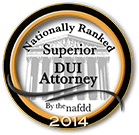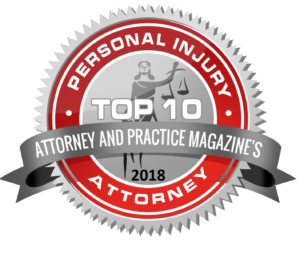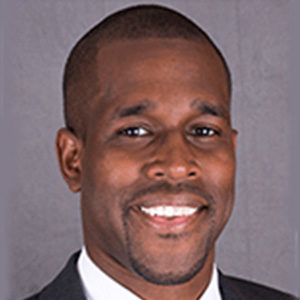When dealing with a premises liability claim in Virginia, one of the most challenging aspects is handling insurance companies. Premises liability cases arise when someone is injured due to unsafe or hazardous conditions on another person’s property. The owner or the occupier of the property can be held legally responsible for injuries that occur on their premises if they fail to maintain a safe environment. Whether the injury happened in a store, at a friend’s house, or in a public place, navigating the legal process can be daunting, especially when insurance companies are involved.
It’s important to understand that insurance companies are often more interested in minimizing payouts than ensuring you receive fair compensation. They may use various tactics to undermine or devalue your claim. Knowing how to manage these interactions can significantly impact the outcome of your case. With some preparation, knowledge, and guidance, you can protect your rights and pursue the compensation you deserve for your injuries. At, NovaLegalGroup, P.C , we are here to guide you through the legal process and help you navigate the complexities of your case.

Understanding Premises Liability Claims in Virginia
Before diving into the specifics of dealing with insurance companies, it’s important to understand what premises liability claims involve. Premises liability refers to a property owner’s responsibility to ensure that their property is safe for visitors and guests. This means that property owners must fix or warn about any hazardous conditions that could cause injury to others.
In Virginia, the law classifies visitors to a property into three categories: invitees, licensees, and trespassers. An invitee is someone who is on the property for business purposes, such as a customer at a store. Property owners owe the highest duty of care to invitees, meaning they must regularly inspect the property for hazards and repair them promptly. A licensee is someone who is on the property for social reasons, like a guest at a party. Property owners must warn licensees about any known hazards but are not required to inspect the property for hidden dangers. Trespassers are individuals who are on the property without permission. Property owners generally do not owe a duty of care to trespassers, except in certain circumstances, such as when the trespasser is a child.
Understanding which category you fall under as an injured party is important because it can affect how your claim is evaluated by insurance companies. The level of care the property owner owes to you can impact whether they are found liable for your injuries.
Dealing with Insurance Companies After a Premises Liability Injury
After an accident occurs on someone else’s property, one of the first things you may have to do is deal with the property owner’s insurance company. Insurance companies play a major role in premises liability claims, as they are typically the ones who will pay out any settlements or judgments on behalf of the property owner. However, it’s important to remember that insurance companies are businesses, and their goal is often to pay out as little as possible.
The first thing that may happen after you file a claim is that an insurance adjuster will contact you. This person’s job is to investigate the claim on behalf of the insurance company. While the adjuster may seem friendly and helpful, their primary goal is to gather information that can be used to minimize your claim or deny it altogether. It’s important to be cautious about what you say during these conversations, as anything you share could be used against you.
What to Do When the Insurance Adjuster Contacts You
If you are contacted by an insurance adjuster, it is essential to remain calm and cautious. While it may seem like a good idea to cooperate fully and answer all of their questions, it’s important to remember that the insurance adjuster is not on your side. Their job is to look for ways to limit the amount of money the insurance company will have to pay.
One of the first things you should do is avoid giving a recorded statement. The insurance adjuster may ask for a recorded statement to gather your version of the events, but you are not required to provide one. In fact, giving a recorded statement could hurt your case, as the adjuster may use your words against you later. It’s best to politely decline and inform them that you will only provide information through your attorney.
Additionally, be wary of any quick settlement offers. In some cases, the insurance company may offer a settlement soon after the accident, hoping to resolve the claim quickly and for a lower amount. While it may be tempting to accept a settlement to avoid the stress of a lengthy legal process, it’s important to take the time to evaluate the full extent of your injuries and damages. Once you accept a settlement, you may be giving up your right to pursue further compensation, even if your injuries turn out to be more serious than you initially thought.
How Insurance Companies Evaluate Premises Liability Claims
Insurance companies use a variety of factors to evaluate premises liability claims. One of the most important factors is determining whether the property owner was negligent. To establish negligence, you must prove that the property owner had a duty to maintain a safe environment, that they breached that duty, and that the breach directly caused your injury. Insurance adjusters will closely examine the circumstances surrounding your accident to determine whether the property owner was at fault.
Another key factor in evaluating a claim is the severity of your injuries. Insurance companies will typically look at medical records, bills, and other documentation to assess the extent of your injuries and the impact they have on your life. They may also consider whether you contributed to your own injury. For example, if you were distracted or ignored a warning sign, the insurance company may argue that you were partially responsible for the accident, which could reduce the amount of compensation you are entitled to receive.
Choosing a Personal Injury Attorney Personal Injury Case TimelineRelated Videos
The Importance of Medical Documentation
One of the most critical pieces of evidence in a premises liability claim is your medical records. After an injury, it’s important to seek medical attention right away, even if you think your injuries are minor. Not only is this important for your health, but it also creates a record of your injuries that can be used to support your claim. Insurance companies will carefully review your medical records to determine the severity of your injuries and whether they are consistent with the type of accident you experienced.
In addition to seeking medical treatment immediately after the accident, it’s also important to follow through with any recommended treatments or therapies. If you fail to follow your doctor’s advice or miss appointments, the insurance company may argue that your injuries are not as serious as you claim, which could hurt your case.
Handling Settlement Negotiations
Once the insurance company has completed its investigation and evaluation of your claim, they may make a settlement offer. It’s important to remember that the initial offer is often lower than what your claim is actually worth. Insurance companies typically start with a low offer in the hopes that you will accept it without further negotiation.
Before accepting any settlement, it’s important to carefully review the offer with your attorney. Your attorney can help you determine whether the settlement fairly compensates you for your medical bills, lost wages, pain and suffering, and other damages. If the offer is too low, your attorney can negotiate with the insurance company on your behalf to try to reach a more favorable settlement.
In some cases, negotiations may not result in a satisfactory settlement. If this happens, your attorney may advise you to file a lawsuit and take your case to court. While going to court can be a lengthy and stressful process, it may be necessary to ensure that you receive the compensation you deserve for your injuries.
Protecting Your Rights with Legal Representation
Navigating the legal process of a premises liability claim can be overwhelming, especially when dealing with insurance companies that are focused on minimizing payouts. Having an attorney on your side can help level the playing field and ensure that your rights are protected throughout the process. An experienced attorney can handle communication with the insurance company, gather evidence to support your claim, and negotiate on your behalf to help you receive the compensation you deserve.
If you’ve been injured on someone else’s property in Virginia, it’s important to take steps to protect your rights and seek legal guidance as soon as possible. The sooner you speak with an attorney, the sooner they can begin working on your case and help you navigate the complexities of dealing with insurance companies.
At NovaLegalGroup, P.C., we understand how challenging it can be to deal with insurance companies after a premises liability injury. Our experienced attorneys are here to help you every step of the way, from filing your claim to negotiating a fair settlement. If you’ve been injured on someone else’s property in Virginia, contact NovaLegalGroup, P.C. today to schedule a consultation and learn how we can help you pursue the compensation you deserve.










